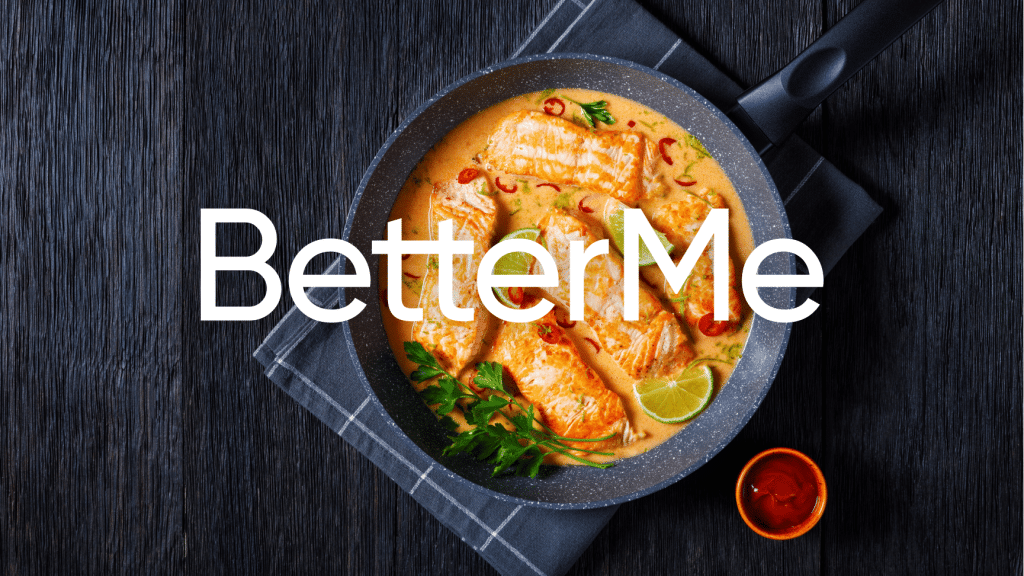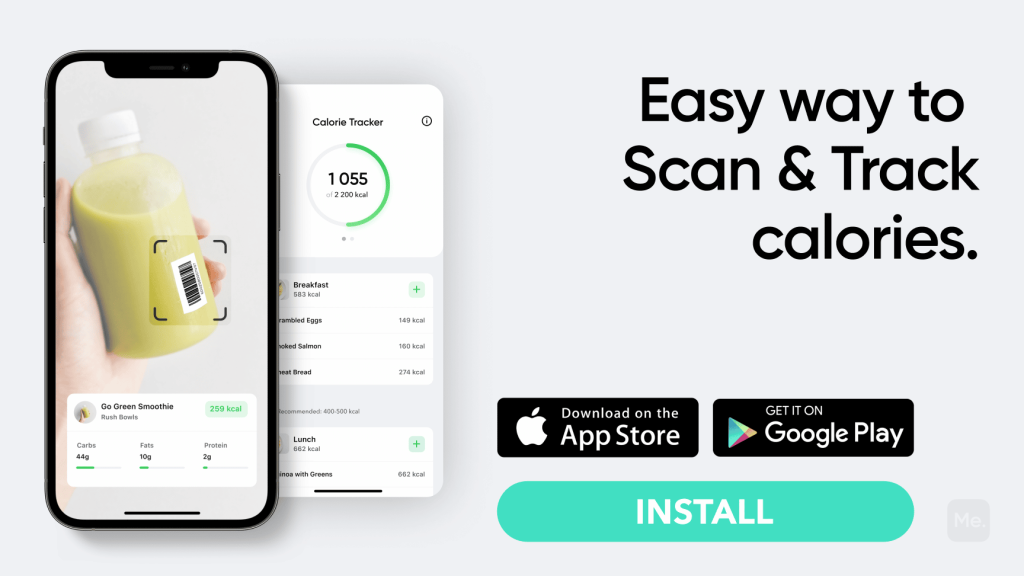Research into gut health has revealed that an upset or inflamed gut can negatively impact our mood, energy levels, and immune response. Hence, showing how important a role our digestive system plays in our overall wellness. To address this, we present “The 7-Day Bland Diet Menu to Soothe Your Gut”. This guide is designed for individuals seeking to allow their digestive system to recover gently and effectively. The menu features easy-to-digest foods that may help reduce inflammation or minimize irritation to restore balance in your gut.
Whether you’re recovering from a stomach bug, dealing with chronic digestive issues, or simply want a break from heavy, rich foods, this 7-day plan offers a path to calm and comfort. Our goal is to provide a simple, nourishing approach to eating that supports gut health and promotes overall well-being.
What Is The Bland Diet?
The Bland Diet is a dietary regimen designed to alleviate gastrointestinal distress and promote digestive health. It comprises foods that are low in fiber, lightly seasoned, and not too spicy, fatty, or acidic. The aim is to minimize irritation to the stomach and intestines, allowing them to heal or function optimally.
This way of eating is sometimes recommended for individuals with digestive issues, such as gastritis, peptic ulcers, heartburn, gastroesophageal reflux disease (GERD) (4), or those recovering from certain types of surgery. It can also be beneficial for those suffering from occasional digestive discomfort or looking to give their digestive system a rest.
The bland diet can give the gut lining a chance to heal from irritation, reduce inflammation, and manage symptoms like pain, bloating, gas, nausea, and vomiting. It’s a temporary solution meant to provide relief during periods of acute distress, rather than a long-term nutritional strategy (3).
Does The Bland Diet Work?
While there may not be a significant body of scientific literature specifically studying the bland diet, the principles behind it are well-supported by clinical practice. The diet’s emphasis on easily digestible and low-irritant foods aligns with widely accepted clinical practices for managing digestive disorders (3).
For instance, spicy, fatty, or highly acidic foods are known to exacerbate symptoms in individuals with conditions like GERD or gastritis (1). Similarly, foods high in dietary fiber, while generally beneficial for gut health, can cause discomfort for those with certain digestive issues like diverticulitis or inflammatory bowel disease during flare-ups. In these contexts, following a bland diet temporarily can offer symptomatic relief.
Moreover, anecdotal evidence from patients and practitioners alike suggests that a bland diet can be effective in managing acute digestive distress. Many people report experiencing fewer digestive symptoms and improved overall well-being when following this diet.
Note that while the bland diet can help manage symptoms, it is not a cure for underlying digestive disorders. It should be used as part of a comprehensive treatment plan under medical supervision.
Furthermore, long-term adherence to a bland diet without professional guidance could risk nutritional deficiencies, as it may lack certain nutrients present in a wider variety of foods.
Read More: Your Guide To The 7-Day Protein Diet Plan For Weight Loss
Bland Diet Meal Plan
The menu for a bland diet primarily focuses on foods that are easy to digest, not overly spicy or acidic, and gentle on the stomach and intestines. It includes a variety of items across all food groups, prepared in ways that minimize potential irritation to the digestive system.
Bland Diet Foods
A soft bland diet includes foods from various categories, all chosen for their ease of digestion and low irritant properties (2) (3) :
Proteins
Lean meats like chicken, turkey, or fish, tofu, eggs, and well-cooked legumes offer easily digestible protein. They’re often cooked using gentle methods like steaming or poaching.
Grains
Refined grains like white rice, pasta, and bread are typically easier to digest than their whole-grain counterparts.
Fruits And Vegetables
Well-cooked or canned fruits and vegetables might be better than raw ones, as they’re easier to digest. Bananas, applesauce, cooked potatoes or squash, and canned tomatoes are popular choices.
Dairy
Low-fat or non-fat dairy products are more easily digestible than full-fat versions. Examples include low-fat milk, yogurt, and cottage cheese. Some individuals may need to limit these depending on personal tolerance.
Healthy Fats
Healthy fats like olive oil, avocado, or nut butter are beneficial for gut health. These can be included in moderation.
What Foods To Avoid On A Bland Diet?
While following a bland diet, certain foods should be avoided due to their potential to aggravate the digestive system (2) (3):
Spicy Foods
These can irritate the lining of the stomach and esophagus, exacerbating symptoms like heartburn. Foods that fall into this category include chili peppers, hot sauces, and spicy condiments. It’s also better to avoid herbs and spices like cayenne pepper, curry powder, and horseradish. You can use mild seasonings like salt, pepper, garlic powder, and parsley instead.
Fried Foods
Fried foods can be difficult to digest and often contain high amounts of unhealthy fats. Thus, you should avoid any deep-fried food. Examples of such foods include French fries, potato chips, fried chicken, and doughnuts.
Alcohol
Alcohol can irritate the gastrointestinal tract and may worsen conditions like GERD and gastritis. All types of alcohol including beer, wine, and spirits should be avoided.
Caffeinated Beverages
Caffeine stimulates the production of stomach acids, which can worsen the symptoms of those with digestive disorders. Coffee, tea, and energy drinks are not a good choice on a bland diet.
High-Fat Foods
High-fat foods are different from healthy fats as they can be difficult to digest. Foods that should be avoided include fatty cuts of meat, butter, cream cheese, and full-fat dairy products.
BetterMe app is a foolproof way to go from zero to a weight loss hero in a safe and sustainable way! What are you waiting for? Start transforming your body now!
High-Fiber Foods
High-fiber foods, such as legumes, whole grains, nuts, and seeds, can be difficult to digest and can cause discomfort in individuals with certain digestive issues. Raw vegetables like broccoli, cabbage, and onions are also best avoided.
Processed Foods
Processed foods tend to be high in unhealthy fats and artificial ingredients, which can worsen digestive distress. Ingredients such as artificials, monosodium glutamate (MSG), and food additives like nitrates should be avoided while following a bland diet. Chips, crackers, sugary snacks, and packaged meals should be limited or avoided on a bland diet.
Citrus And Acidic Foods
These can irritate the digestive tract and exacerbate symptoms like heartburn or acid reflux. Fruits are especially high in acid, so those on a bland diet should avoid oranges, grapefruits, lemons, and tomatoes.
What’s A Bland Breakfast?
Starting your day gently is key to a bland diet.
Here are six breakfast ideas that are easy on the stomach:
- Cream of wheat with a drizzle of honey
- Scrambled eggs with white toast (no butter)
- Plain rice pudding
- Banana slices with cottage cheese
- Oatmeal made with water and topped with a dollop of applesauce
- Boiled or poached egg with a side of steamed potatoes
What’s A Bland Snack?
Snacks on a bland diet should be light and easy to digest.
Here are six snack ideas:
- Rice cakes
- Applesauce
- Banana
- Plain, unbuttered popcorn
- Canned peaches or pears
- Saltine crackers
What’s A Bland Lunch?
Lunch on a bland diet should be satisfying without causing any digestive distress.
Here are a few bland lunch ideas:
- Chicken noodle soup
- Pasta with a light drizzle of olive oil
- Baked chicken breast with steamed zucchini
- Turkey sandwich on white bread (hold the mayo)
- Steamed rice with poached fish
- Scrambled eggs with boiled potatoes
What’s A Bland Dinner?
Dinner on a bland diet can still be enjoyable and fulfilling.
Here are some bland diet dinner meal ideas:
- Poached salmon with a side of mashed potatoes
- Baked turkey with steamed carrots
- Grilled chicken breast with well-cooked green beans
- Boiled shrimp with white rice
- Roasted turkey with steamed butternut squash
- Baked cod with a side of soft, cooked peas
Read More: Does The Chicken Broth Diet Work?
Sample Bland Diet Menu For 7 Days
When creating a bland diet menu, it’s important to include foods from all major food groups.
Here is an example of what you might eat in a week:
Day 1
- Breakfast: Scrambled eggs with toast
- Lunch: Grilled chicken breast with boiled potatoes
- Dinner: Baked fish with steamed rice
Day 2
- Breakfast: Banana smoothie with oats
- Lunch: Turkey sandwich on white bread
- Dinner: Poached chicken with mashed potatoes
Day 3
- Breakfast: Oatmeal with applesauce
- Lunch: Baked salmon with white rice
- Dinner: Boiled eggs with toast
Day 4
- Breakfast: Pancakes with bananas
- Lunch: Grilled chicken salad (lettuce and cucumber)
- Dinner: Steamed fish with boiled potatoes
Day 5
- Breakfast: Scrambled eggs with toast
- Lunch: Roast turkey with steamed rice
- Dinner: Baked fish with mashed potatoes
Day 6
- Breakfast: Banana smoothie with oats
- Lunch: Chicken soup with white bread
- Dinner: Poached eggs with toast
Day 7
- Breakfast: Oatmeal with applesauce
- Lunch: Baked salmon with white rice
- Dinner: Grilled chicken breast with boiled potatoes
7-Day Bland Diet Menu Benefits
Relief Of Gastrointestinal Discomfort
A 7 day bland diet menu can be incredibly beneficial for those dealing with gastrointestinal issues. For individuals experiencing symptoms like diarrhea, vomiting, or stomach discomfort due to conditions such as gastritis, diverticulitis, or ulcerative colitis, a bland diet can prove helpful (3).
The foods in this diet are easy to digest and low in fiber, which can reduce the frequency of bowel movements and provide comfort to the irritated digestive tract. It is often prescribed as a short-term solution during flare-ups or recovery from surgery.
Managing Acid Reflux And Heartburn
For individuals suffering from GERD (Gastroesophageal Reflux Disease) or peptic ulcers, a bland diet can help manage symptoms by reducing the production of stomach acid.
The diet includes food that is low in fat and does not stimulate acid production, thereby reducing discomfort. Also, because the foods in a bland diet are easy to digest, they move through the stomach more quickly, decreasing the likelihood of acid reflux (2).
Intense sweat sessions, working weight loss tips, lip-smacking recipes come in one package with the BetterMe app. And all of it is at your fingertips, start transforming your life now!
Combating Nausea And Vomiting
A bland diet can also be advantageous in managing nausea and vomiting linked to chemotherapy, pregnancy, or other medical conditions. By limiting intake to foods that are not spicy, fatty, or overly sweet, individuals can avoid triggers that might otherwise exacerbate these symptoms (3).
Stabilizing Blood Sugar Levels
The simplicity of the foods in a bland diet can help in stabilizing blood sugar levels. This can be particularly beneficial for people with diabetes or hypoglycemia. Foods in a bland diet, like rice and potatoes, provide a steady release of energy, helping avoid sudden spikes or dips in blood sugar levels (3).
Long-Term Use And Nutritional Considerations
While a bland diet has numerous benefits, it’s crucial to note that it is often used as a short-term solution for specific health issues. The diet lacks variety and certain nutrients, and therefore, shouldn’t be followed long-term without the supervision of a healthcare professional.
Always consult with a healthcare provider before starting any new diet plan. They can help tailor the diet to your needs, ensuring you get the necessary nutrients while still adhering to the principles of a bland diet.
FAQs
Is yogurt a bland food?
Yes, plain yogurt, especially low-fat or non-fat, is considered a bland food. It’s smooth, easy to digest, and lacks spices, high-fat content, or acidity that could potentially irritate the digestive system.
However, it’s important to choose unsweetened varieties, as sugar can sometimes contribute to gastrointestinal discomfort. Additionally, while many people tolerate yogurt well, those with lactose intolerance or certain other digestive conditions may need to avoid it.
Can I eat eggs on a bland diet?
Yes, you can eat eggs on a bland diet. They are a good source of protein and are generally easy to digest. However, it’s recommended to have them boiled, poached, or scrambled in minimal oil rather than fried.
Is coffee okay on a bland diet?
No, coffee is not recommended on a bland diet. Caffeine can stimulate the production of stomach acid, which can cause irritation and exacerbate symptoms like heartburn or acid reflux.
Is broccoli a bland food?
Broccoli is not typically considered a bland food. While it is healthy, it is high in fiber and can cause gas and bloating in some people, which is why it’s usually not included in a bland diet.
Is chocolate okay on a bland diet?
No, chocolate is not recommended on a bland diet. Chocolate contains caffeine and sugar that can increase stomach acidity and potentially cause discomfort.
7 Day Bland Diet Menu: The Bottom Line
The 7-day bland diet menu is a gentle approach to nourishing your body when you’re dealing with digestive issues. With simple, easy-to-digest foods, this diet can help soothe your gut, manage symptoms of heartburn, acid reflux, and diarrhea, and aid in stabilizing blood sugar levels. Remember, it’s always important to consult with a healthcare professional before starting any new diet plan.
DISCLAIMER:
This article is intended for general informational purposes only and does not serve to address individual circumstances. It is not a substitute for professional advice or help and should not be relied on for making any kind of decision-making. Any action taken as a direct or indirect result of the information in this article is entirely at your own risk and is your sole responsibility.
BetterMe, its content staff, and its medical advisors accept no responsibility for inaccuracies, errors, misstatements, inconsistencies, or omissions and specifically disclaim any liability, loss or risk, personal, professional or otherwise, which may be incurred as a consequence, directly or indirectly, of the use and/or application of any content.
You should always seek the advice of your physician or other qualified health provider with any questions you may have regarding a medical condition or your specific situation. Never disregard professional medical advice or delay seeking it because of BetterMe content. If you suspect or think you may have a medical emergency, call your doctor.
SOURCES:
- Association of Symptoms with Eating Habits and Food Preferences in Chronic Gastritis Patients: A Cross-Sectional Study (2020, nih.gov)
- Bland diet (2022, medlineplus.gov)
- Bland Diet (2022, nih.gov)
- Gastroesophageal Reflux Disease (2022, nih.gov)











